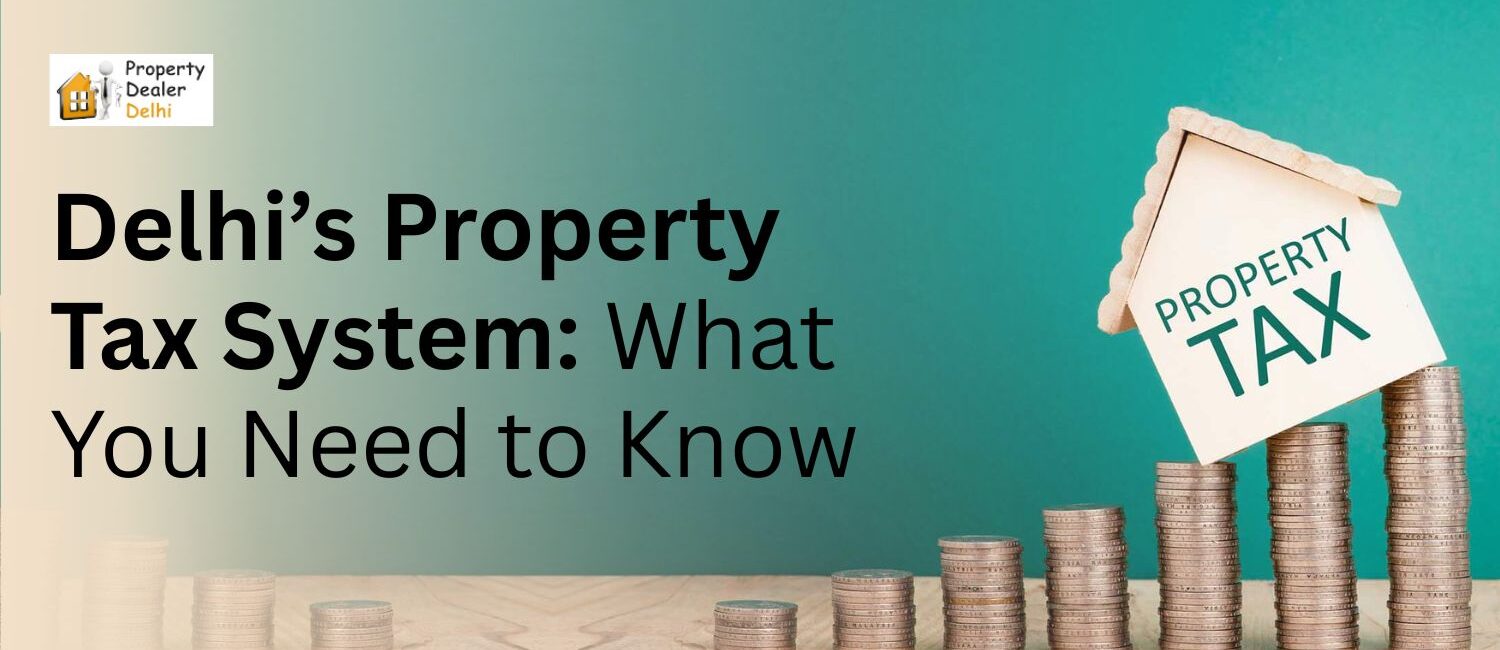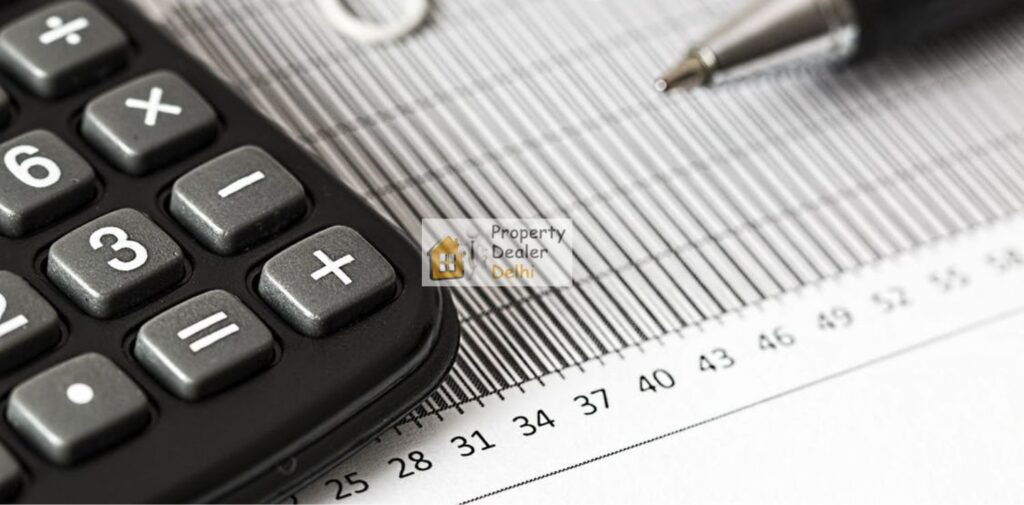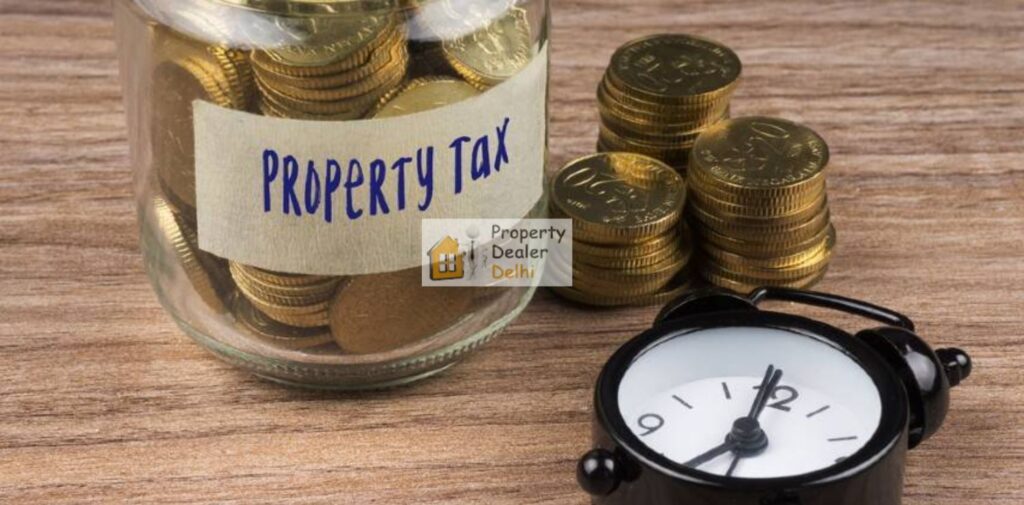
Property tax is an important source of revenue for local governments, and in a growing city like Delhi, it plays a crucial role in funding the development and maintenance of infrastructure and services. Understanding the Delhi Property Tax System is essential for homeowners, property buyers, and investors to ensure they remain compliant with the law and avoid any penalties. In this article, we will take you through the basics of Delhi property tax system and what you need to know.
What is Property Tax in Delhi?
Property tax is a tax that property owners are required to pay to the Municipal Corporation of Delhi (MCD) based on the value of their property. The tax collected is used for a range of civic services such as maintaining roads, sanitation, public parks, street lighting, and water supply. Property taxes also help fund city development programs, making it a vital part of Delhi’s urban growth.
In Delhi, property tax applies to both residential and commercial properties. Whether you own a flat, house, office space, or shop, you are liable to pay property tax. The amount you need to pay depends on several factors, such as the size of the property, its location, and its usage.

How is Property Tax Calculated in Delhi?
The Municipal Corporation of Delhi (MCD) uses a system known as the Unit Area Method (UAM) to calculate property tax. Under this system, the property tax is determined based on the area of the property and its usage type (residential, commercial, or industrial). The tax is calculated by multiplying the area of the property with a fixed rate per square meter.
For residential properties, the rate per square meter is usually lower than for commercial properties, as businesses generate more income. Additionally, the location of the property also affects the tax rate. For example, properties located in prime areas like Connaught Place or Saket may have a higher tax rate compared to properties in suburban or peripheral areas. The property’s age, the type of construction, and the amenities available also play a role in determining the tax amount.
Tax Payment Process and Deadlines
Paying property tax in Delhi is a straightforward process. Property owners can pay their tax either online or offline. The MCD provides an online platform where property owners can check their outstanding tax dues, calculate the amount they need to pay, and make the payment through a secure gateway. Payments can also be made at designated MCD centers or authorized banks in the city.
The property tax is generally payable on an annual basis, and the payment is due by March 31st every year. However, Delhi’s MCD often provides a grace period, and owners may be allowed to pay the tax in installments. It’s important to keep track of the deadlines to avoid penalties and interest charges for late payment. If you miss the deadline, the MCD may levy a penalty, which could increase the total tax burden.
To make things easier, the MCD often allows property owners to claim exemptions or reductions in certain cases. For example, properties used for educational purposes, religious activities, or public service may qualify for tax exemptions. It is advisable to consult with the MCD or a tax consultant to understand if you are eligible for any such exemptions.
Common Issues and Solutions
Many property owners in Delhi face challenges when it comes to property tax. One common issue is the incorrect assessment of property value. Sometimes, the area of the property is miscalculated, or the property is categorized incorrectly (for example, as residential instead of commercial). To address such issues, property owners should always verify their property details before making any payments. You can visit the local MCD office to request a reassessment if you believe your property’s tax has been calculated wrongly.
Another problem is the lack of awareness about exemptions or tax reductions available. Property owners often miss out on these benefits because they don’t know they are eligible. It’s essential to stay informed about the different exemptions that may apply to your property. For example, if your property is located in a development zone or has been newly constructed, you may be eligible for certain rebates.

Importance of Paying Property Tax on Time
Paying property tax on time is crucial for several reasons. Firstly, it ensures that you avoid penalties, interest charges, or legal action from the MCD. Secondly, timely tax payments contribute to the development and maintenance of civic infrastructure in your locality, which directly benefits you and your neighbors. From improved roads and street lighting to better sewage and waste management, the funds collected from property taxes help improve the quality of life in Delhi.
Moreover, keeping your property tax payments up to date is also important if you plan to sell or transfer ownership of your property. Buyers often check the tax status of a property before making a purchase, and any unpaid dues can delay the sale or even result in a lower price.
Conclusion: Delhi Property Tax System
Delhi property tax system is designed to fund the development and maintenance of the city’s infrastructure and services. By understanding how property tax is calculated, the payment process, and the deadlines, property owners can ensure they comply with the system and avoid penalties. It’s essential to stay informed about any exemptions or rebates available, as these can help reduce your tax liability. Paying property tax on time not only benefits your property but also contributes to the overall growth of the city. Whether you are a first-time homeowner or an experienced investor, knowing the basics of Delhi’s property tax system is crucial to managing your property effectively.

